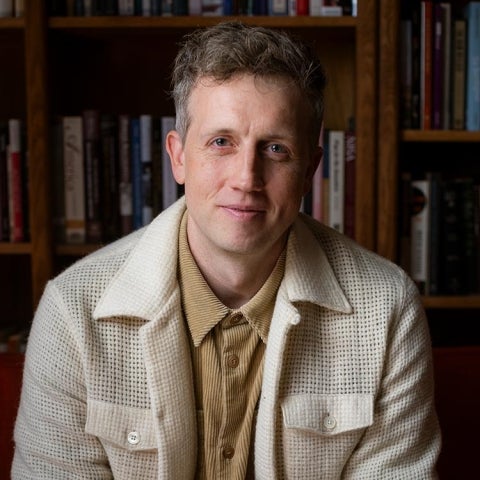
As religion declines in the United States, where are people turning for meaning and purpose? A UC Santa Barbara professor is looking for answers.
Religious studies associate professor Joseph Blankholm has received a $1.55 million grant from the John Templeton Foundation to lead a three-year study exploring how spirituality is evolving outside traditional religious institutions. The project, “Metaphysical Spirituality and the Future of Religion: From the Margins to the Mainstream,” will examine the beliefs and practices of people who identify as spiritual but not religious, offering new insight into how modern forms of spirituality shape ethics, community and meaning in everyday life.
“This is a project about spirituality and how it matters more than ever when religion is declining,” Blankholm said. “We’re trying to understand the history and tradition of spirituality. We want to know what certain kinds of spirituality really are.” Blankholm is working with Matthew Harris, a UCSB alum who’s now a professor at the University of Chicago. Their research also aims to show that for many, modern spirituality is not a new phenomenon but a continuation of a coherent tradition with its own ethics and values.
“We have a lot of research on why people are leaving religion,” Blankholm said. “We’re doing this kind of odd thing where we’re exploring an absence. We can see that there’s more there — that there’s a really rich set of spiritual traditions that are growing in importance.”
The study extends the inquiry from Blankholm’s first book, “The Secular Paradox: On the Religiosity of the Not Religious” (NYU Press, 2022), which is based on years of fieldwork and explores why being secular can sometimes feel religious.
The project’s four primary goals are to document the variety of beliefs among spiritual people, legitimize the academic study of spirituality, foster dialogue among scholars and foster respectful conversation between academics and the public.
The new award also builds on a previous Templeton-funded project that Blankholm co-led to explore the relationship between spirituality and prosocial values.
“People who are spiritual but not religious are more likely to hold certain attitudes about health and wellness, education and politics,” explained Blankholm, who argues that as this spiritual population grows, understanding their beliefs, practices and values is essential.
The grant will support several key publications, including new books by Blankholm and Harris and an edited volume featuring contributions from more than a dozen international scholars; it will also fund events and discussions on campus and in the community.




